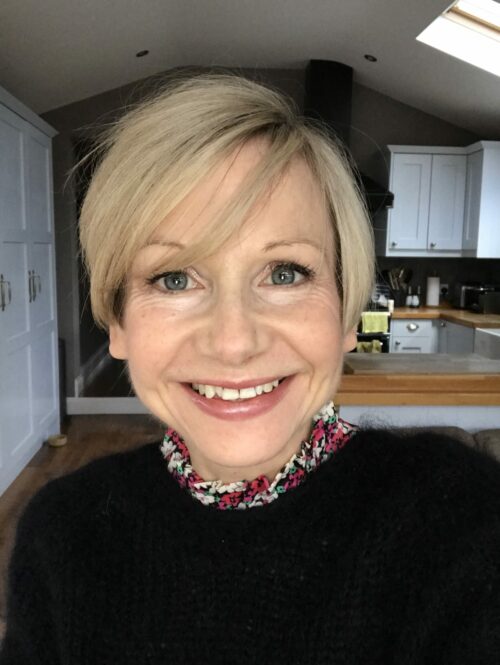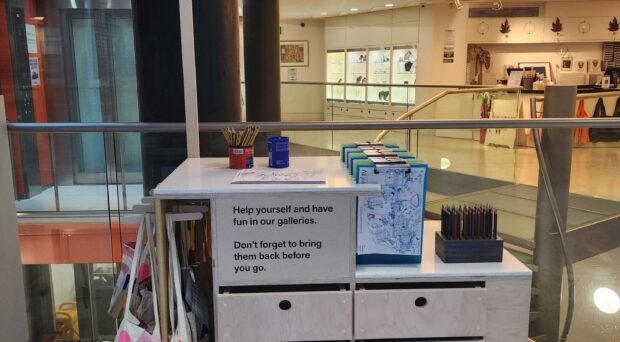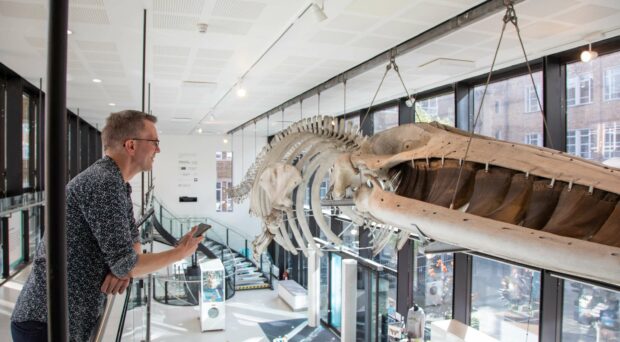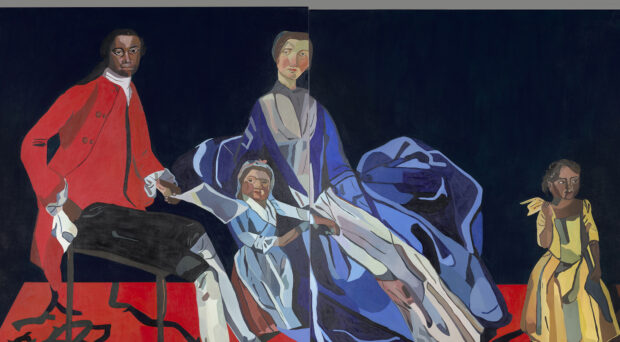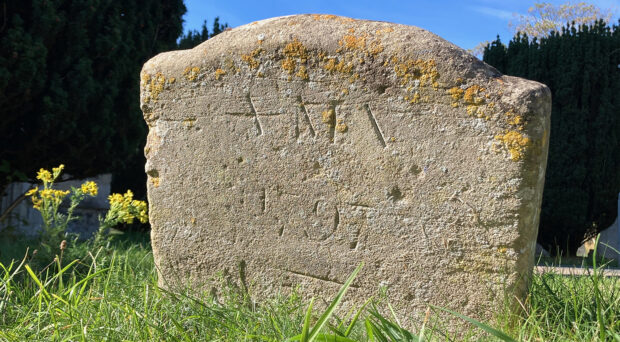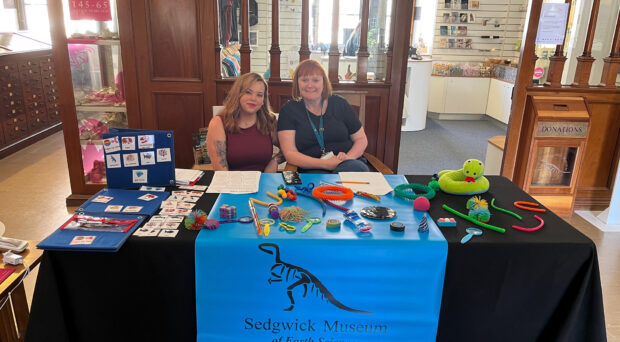Following a year of change, transition and new ways of working, this period was one of reflection and consolidation as we focussed on the planning and delivery of a second year of programming. Our well-established themes of Social Justice, Our Planet, Creating Opportunities, Health and Wellbeing, and Programme Enablement provided a focus for activity and audience development; and building on last year’s successful pilot of Social Justice and Our Planet research and development grants, a new round of funding was launched. Encouraging our collections to develop innovative approaches to working with audiences and creative practitioners, we look forward to hearing from colleagues as they share their learning as case studies and at consortium events.
Case Study: Social Justice
A new NPO year and a new partnership. We are excited to be working with the Kite Trust, a local charity whose work supports the wellbeing and creativity of LGBTQ+ young people in Cambridgeshire, Peterborough and the surrounding area. This partnership provides the UCM with the opportunity to develop its offer to LGBTQ+ audiences and families, while demonstrating that our collections are safe spaces for all communities to spend time in. As part of this, our collections will be hosting some of the Trust’s Meet and Eat events – activities which enable families to spend time together in a fun and supportive environment.
The first museum Meet and Eat session was held at the Whipple Museum in May. The session included a tour exploring the history of science and scientific instruments through stories of LGBTQ+ scientists, who historically were often unable to express their identities openly.
“I learned that it was common for scientists to live with their [same sex assistants] but it wasn’t assumed they were gay or in a relationship.”
“I loved that all the stories we heard were connected to objects in the Museum.”
Participant comments

All participants agreed or strongly agreed that they felt welcome and able to be themselves in the Museum, with further feedback highlighting their enjoyment:
“I enjoyed hearing about the trans scientist (and the food!).”
“I really liked the openness of the staff, their knowledge and the engaging tour.”
Participants’ feedback“We thoroughly enjoyed our visit to the museum… I would most certainly love to bring more Meet N Eats to the museums. They are always a big hit.”
Kite Trust Coordinator
By hosting these sessions, feedback and suggestions from participants will be used to improve our offer:
“We learned a lot from the visit, which has already gone into our LGBQT+ museum trail. This will continue to be improved as we engage more closely with the Kite Trust. The work we did for this visit will also inform our new Bridging Binaries tour, which we hope to roll out in February 2025 for LGBQT+ history month and then make a regular feature of our Saturday openings.”
Learning Coordinator, Whipple Museum
We are delighted that the trust will be delivering LGBTQ+ inclusion training for staff later in the year—part of a package of diversity and inclusion training for staff that also includes ‘Trans-Inclusive Culture’ training organised by our Change Makers Action Group.
Case Study: Our Planet
Through our Collections in Action Our Planet funding, we are continuing to enable our museums and audiences to respond to the issues of climate change, biodiversity loss and unsustainable living. Between April and June, we supported the development of three new initiatives, all of which will take place later this year. Each of these projects will involve a creative practitioner and will be targeted at specific audiences, such as families exploring evolution and the links between the collections of the Zoology, Sedgwick and Whipple Museums; young people finding out more about sustainable fashion at the Zoology Museum; or a local mental health community group responding creatively to the theme of plant evolution with the team at the Botanic Garden.
Using our collections to facilitate discussions around the Our Planet theme in a positive and exciting way is a major aim of our new Community Pop-Up programme. Taking place at ten different locations in Cambridge city between October and November 2024, we hope this project will allow us to develop a better understanding of what our local communities think or feel about the environment, and how they think museums should be responding to this.
While the Pop-Up will not be out until later in the year, this period has seen us working in new ways with creative practitioners on the development of the project. This started with an open call inviting proposals for an eye-catching, sustainable resource which would:
- Involve replica objects inspired by at least two of the UCM natural history collections
- Be hopeful but thought-provoking in response to exploring environmental change
- Involve a way to collect audiences’ thoughts/feelings on the theme
- Be inclusive and accessible to our audiences.
Following the submission of 35 expressions of interest, three creative practitioners were shortlisted to take their proposals forward as part of a funded development stage. To ensure that the artists had a chance to explore the theme with support and input from our collections, they were invited to a workshop with staff from the Botanic Garden, Sedgwick Museum and Zoology Museum, hosted by the UCM central delivery team.
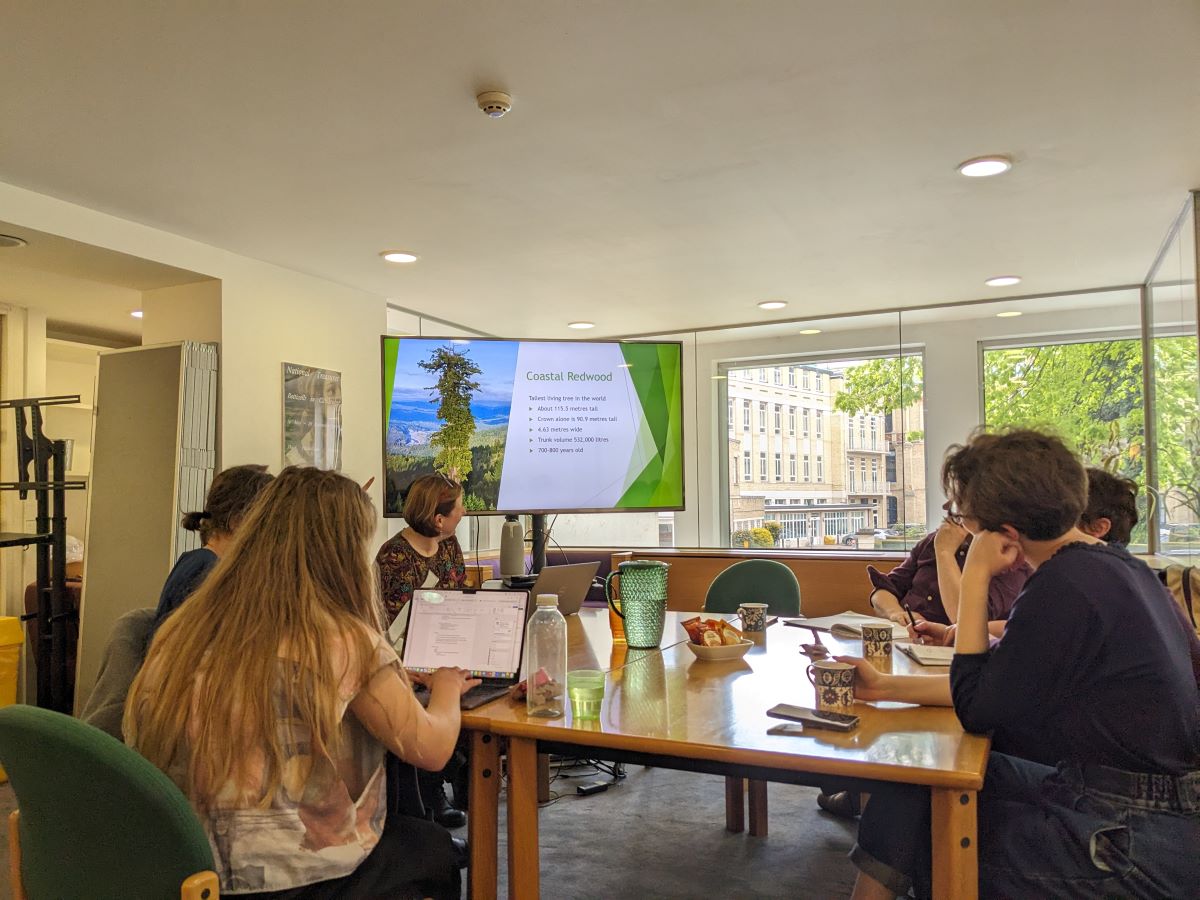
Tori Flower Design was selected from the final proposals to design the pop-up. Tori specialises in creating immersive community engagements that address social and environmental issues, and is a natural fit for this project.
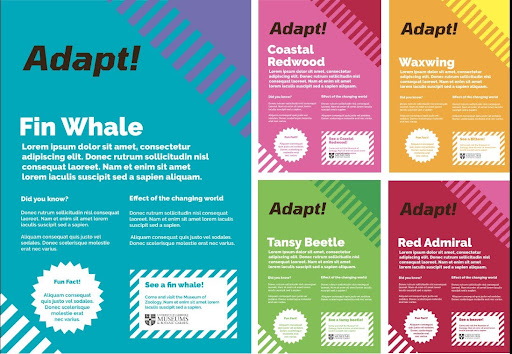
This process has changed how we approach our work with creative partners. By building in sufficient payment, support and time as part of the initial proposal to artists, our aim is to attract a wider range of creatives and ensure that artists feel properly valued for their contributions. This is something that has been reflected in feedback from our shortlisted candidates:
“It is unusual in the museum sector for creatives/designers to be paid to respond to a tender – a process that often requires 2-3 days’ work and the creation of well-developed concepts and project plans. This means people are often being asked to work for free – an inequitable practice that favours those who can afford to do unpaid work. Personally, I appreciated the way the University of Cambridge Museums structured their call for applications and believe this type of practice enables a broader range of creatives or creative organisations to respond.”
“Thank you so much for (the) feedback, which we will reflect on and take forward. We’re so grateful for the opportunity to develop these ideas, and we look forward to future callouts where we will reflect on how best to create work in response to your amazing collections.”
Feedback from two of the creative practitioners
Case Study: Creating Opportunities
During the first part of this year, projects such as our ongoing Creative Schools programme with Staploe Education Trust have continued to allow young people to use our collections as a stimulus for creativity while gaining skills and confidence. Meanwhile, recent Museum Experience internships and the recruitment of an Inclusion Assistant Apprentice have provided participants with opportunities to gain experience, build skills and develop their networks.
Other projects such as our Arts Pioneers programme work with disabled children, young people and their families over a longer duration, recognising the time required to build trust and confidence for this group of participants.
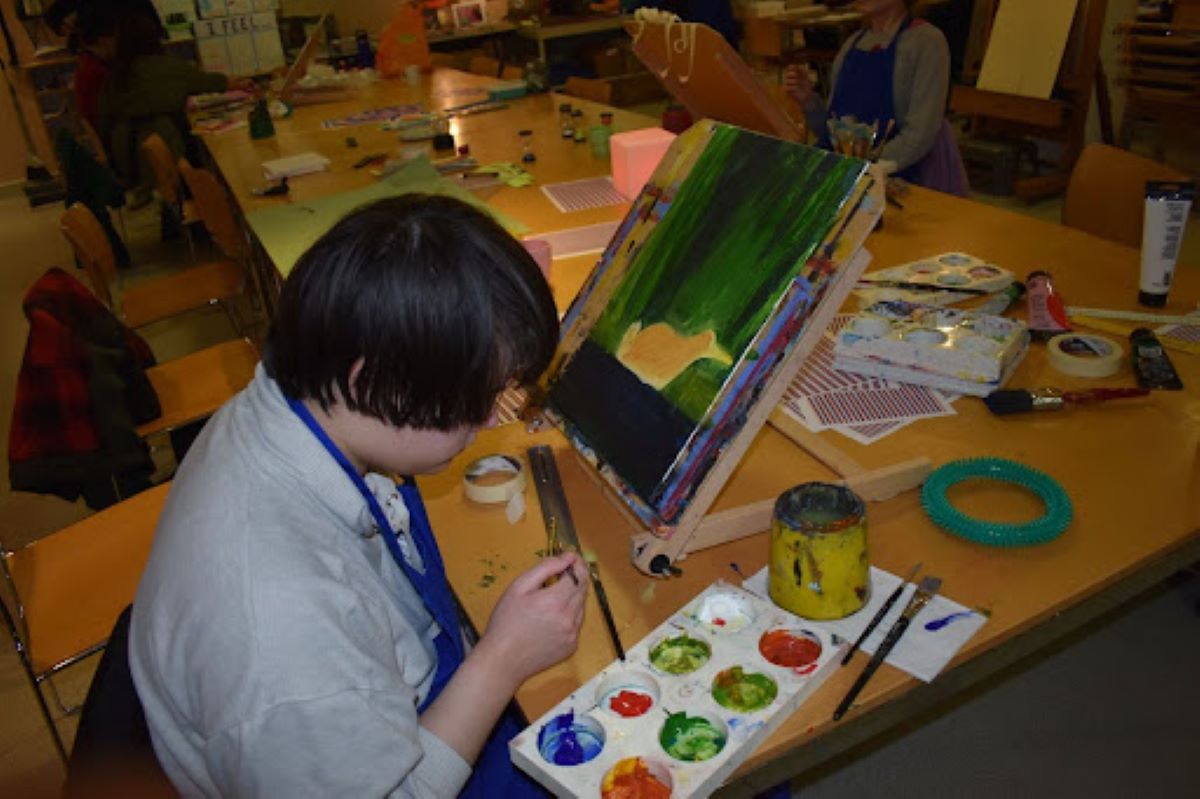
“My daughter’s anxiety often prevents her from enjoying her favourite interest – art. The programme provides a safe time and space for her to explore and enjoy art again with the variety of expertise provided by the team.”
Parent
Running since 2018, this offer is part of a range of County Council services for local families who are referred by a social worker and provides:
- Disabled children and young people with enjoyable experiences away from their primary carers, contributing to their personal and social development and reducing social isolation
- Parents and families a necessary and valuable break from caring responsibilities
- Support for families with disabled children to enable them to do more things together as a family.
“It is a great activity that our son can enjoy, making art and meeting friends. Giving us some very needed free hours.”
“We love participating in this group because it’s bringing the best out of our child. We are seeing the benefits 100%. This team is amazing!”
Comments from parents“The strength of the team and how we are able to collaborate and support each other is part of what makes Arts Pioneers so successful.”
UCM Learning Associate: Young People
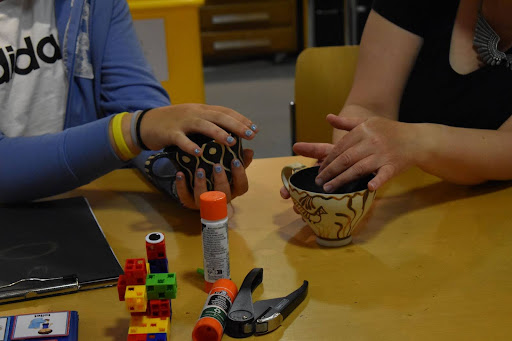
Working with two groups of young people: Arts Pioneers and the Arts Pioneers holiday club, the programme has developed in its ambition and scale over the last six years, impacting positively on both the participants and the work of the delivery team. The collaboration, skills and training of this team – which includes a specialist museum educator, a creative practitioner and two support workers – is key to this, allowing the sessions to feature activities which go beyond crafting and focus on developing the young people as artists, often led by the interests of the young people themselves.
“This is the longest ongoing project I have worked on, and the benefit of this is I am able to build long-term relationships with the young people as they transition through their teen years… I have the opportunity to build trust, which means I can be ambitious in the activities I facilitate.”
Artist Practitioner
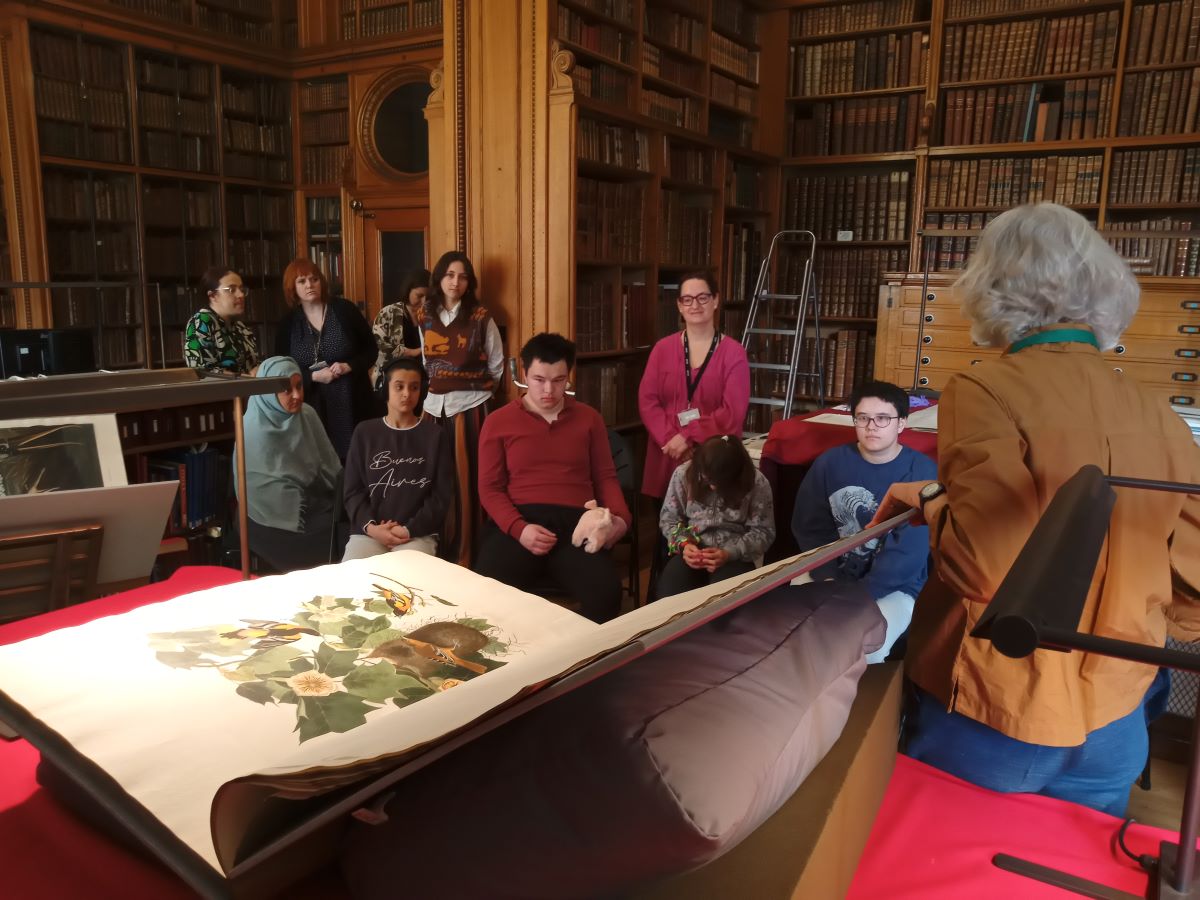
Using the collections as a starting point, recent projects have included still lives using pastels, creating ceramic teapots and bookbinding. This most recent venture included a visit to the Fitzwilliam Museum’s Founders Library to see Audobon’s Birds of America, not normally on display to the public, followed by creating gelatin plate prints which were later then bound into books, with the participants adding further details to their artwork.
“I think it would benefit the entire museum community to see how incredible this programme is. It is what museums should be for. We are giving art back to people that can get so much out of it. It fosters community, confidence, beauty, questions, expression, skills… The list could go on and on.”
Creative Support Worker“The impact on our young people and their families cannot be underestimated. Our parents/carers trust us and recognise that we build strong relationships with their loved ones. They know how much we nurture and encourage their children to grow in confidence and self-esteem, and have expressed what a profoundly positive effect it has made to their quality of life.”
Arts Pioneer Assistant
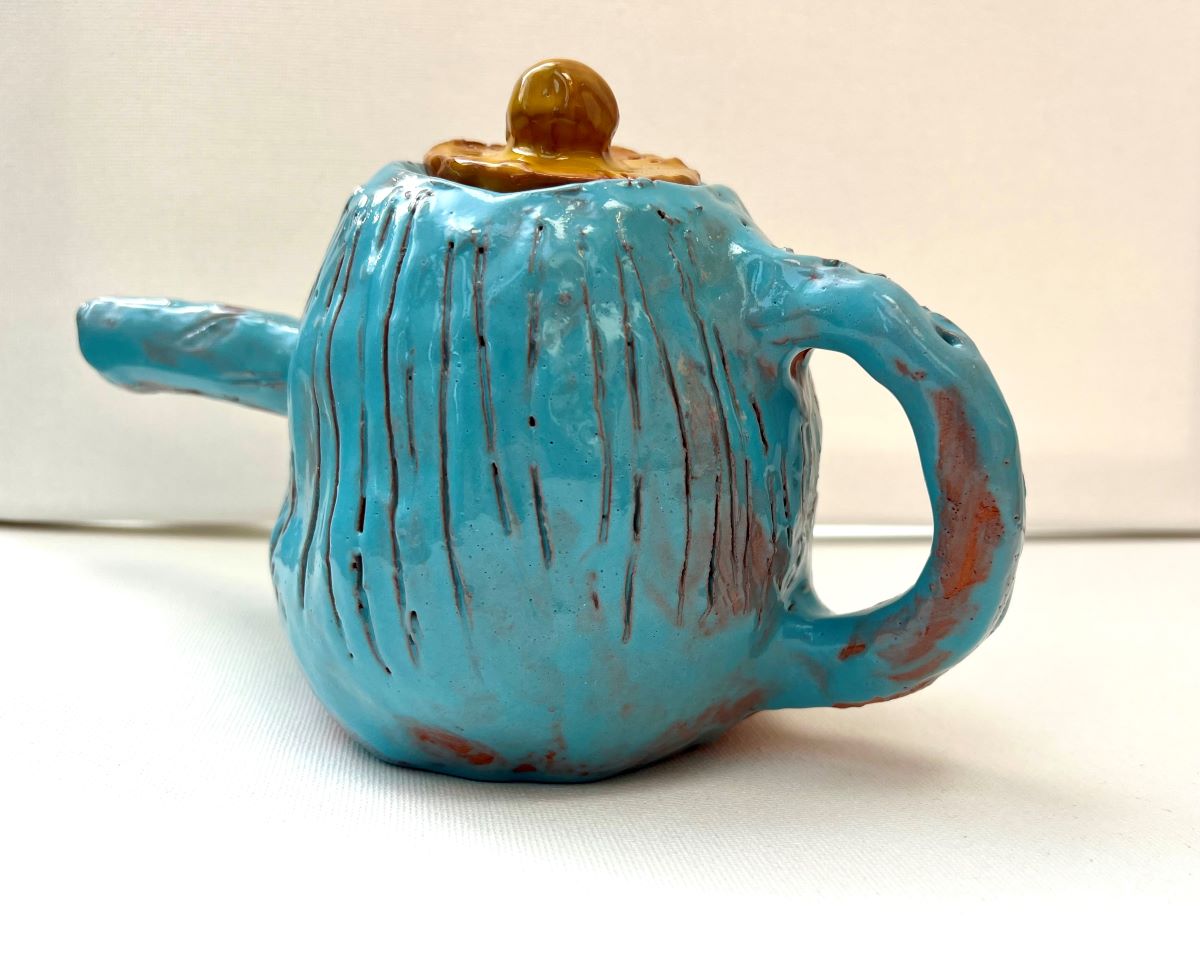
“Our daughter has not attended school for 18 months. Without these sessions, she would not have access to the community or the vital stimulation that she desperately needs to support her mental health and wellbeing.”
Comment from parent
The effect on the young people and their parents has been marked, with 100% of parents agreeing that their child enjoys taking part and talks about the sessions at home. A further 60% agreed that their child had grown in confidence and now practises making art at home. Recent feedback from parents powerfully demonstrates the importance of these sessions to their children’s wellbeing and family life.
“If Arts Pioneers was not available, you would be taking away my hope for my child’s future. It’s a lifeline that I really need. Our child couldn’t join other special needs groups because there was screaming and noise levels were high. However in Art Pioneers, it’s calm, low volume, staff are trained 100%, staff are really hands on, they help, support, guide.”
Comment from parent
Case Study: Health & Wellbeing
Focussing on programmes which promote wellbeing and support agency, confidence and access for those experiencing health inequalities, the UCM Inclusion Team delivers a broad range of activity from work with elders in sheltered housing settings and those with a dementia diagnosis, to programmes which engage with participants that are homeless or vulnerably housed, visitors who are are blind or visually impaired and those based in hospitals.
While we will often take our collections out to community settings, it might be less expected to come across a globe of Mars, or examples of mediaeval chainmail in a local dance studio. However, for participants of Museum Encounters, an adventurous new pilot project for those affected by Parkinson’s, this is exactly what has been happening.
“It’s all so wacky and unique, and I find it hard to explain to others why I come here on a Friday morning.”
Participant
With a rapidly ageing population, Parkinson’s is the fastest growing neurological condition globally and presents a significant societal challenge. Drawing upon our well-established Dance with the Museum programme, along with evidence of the positive therapeutic outcomes of dance for Parkinson’s, Encounters aims to identify how our collections, when combined with dance, can make a positive difference to people affected by this illness.
Working in collaboration with a number of partners, including Parkinson’s Cambridge, Active Parkinson’s and local NPO arts centre Cambridge Junction, 18 participants were initially signed up: 11 with Parkinson’s and 7 companions. Facilitated by Filipa Pereira-Stubbs, Addenbrookes Hospital dance for health artist, sessions took place weekly in the Junction’s fully-accessible dance studio and were attended by representatives of our museum collections. Following an initial welcome and warm-up activity, objects and their stories were presented to the group as a stimulus for dance. Time was also built into the end of the session to explore the objects further and ask more questions.
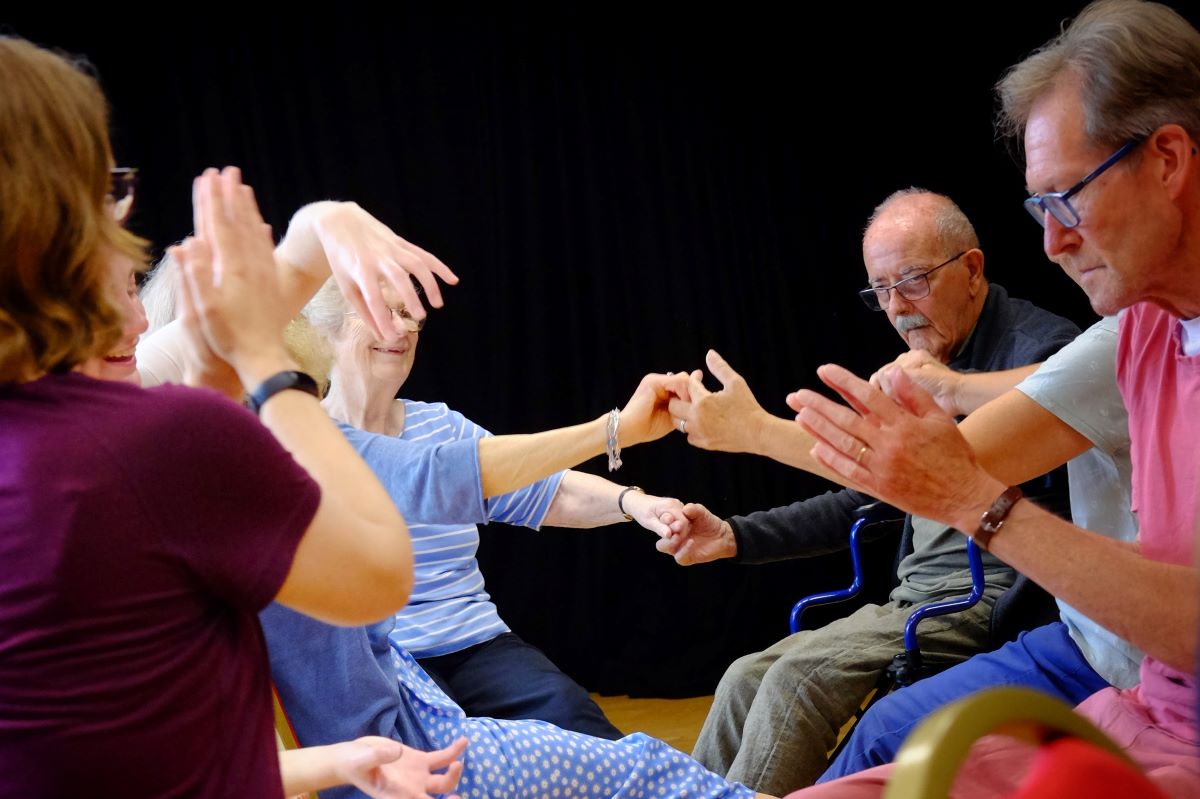
By seeing our collections in an non-traditional setting, and as stimuli for intellectual and creative inspiration, it is hoped that we can encourage perceptual shifts away from thinking of our museums as being inaccessible or irrelevant to the lived experience of a person with Parkinson’s.
“If this hadn’t happened, would I have visited those museums? No. But I have learned more and discovered so much by the museums coming to me.”
“It’s a total surprise. I didn’t know what I would find, but now I cannot imagine not doing it.”
Participant comments
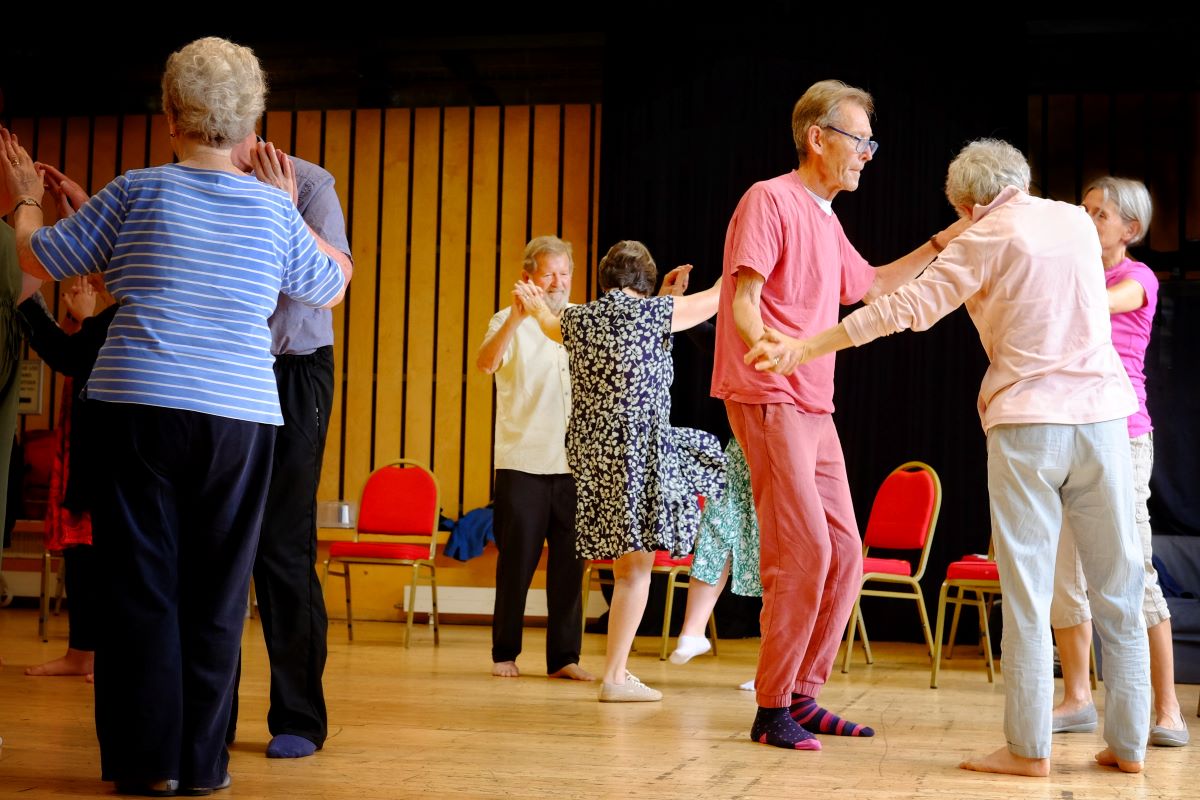
Additionally, by using museum objects in combination with creative movement in a social setting, we aim to improve the physical and mental wellbeing of participants.
“I’m loving the connection between the dance and knowledge – learning something at the same time as dancing!”
“I think the thing that has been so valuable has been the intellectual stimulation combined with physical activity. I think the intellectual side of things is essential. You feel like you’re actually learning something rather than just having tea and coffee.”
“It’s felt like a safe space where you aren’t judged because people are understanding.”
Participant comments
While the full evaluation of this project is currently being drafted, initial evidence indicates that the positive effect on wellbeing has been notable.
When asked at the end of the sessions if they felt better as a result of taking part and if so, the extent to which this is so:
- 90% expressed that they felt better because of taking part
- 90% rated the extent of this as being ‘very much’, using a scale of 1-5
(1 being not at all and 5 being very much)
“Touch is so important for me – holding each other’s hands and moving together was wonderful.”
“This has been teaching me a new way of connecting with Mum, about the importance of slowing down and being with each other rather than frantic problem-solving. I’m so grateful for that. It’s been really powerful because I don’t get to see Mum much, and when I do I’m always rushing her. This has taught me a new way to be with her.”
Participants
Programme Enablement
In addition to the delivery of our NPO-funded activity, we have facilitated a range of work across our consortium which has enabled workforce development and partnership working.
While the discrete funding for our Legacies programme has ended, there is strong commitment across the consortium to continue our work in confronting Cambridge’s colonial history. Following agreement at a cross-UCM Legacies workshop in April, we will be establishing a new Legacies working group to establish priorities and shared goals.
Meanwhile the Change Makers Action Group (CMAG) continues to support staff and volunteers in developing confidence to engage with this subject, while also raising awareness of issues related to our Social Justice stream of work. During this period, CMAG has delivered four bite-size talks including: working with indigenous Arctic organisations; two talks regarding the arts and heritage sector and the current situation in Palestine; and the findings of research into the museums’ African Collections. Additionally, the group held an interactive workshop with Inclusion and Diversity Consultant Dr Miriam Lynn, as part of a launch event for its 2024 campaign, Belonging.
Carbon Literacy training is key to enabling our colleagues to have the knowledge and confidence to respond positively to the challenge of climate change and engage with audiences on this subject. This period has seen us continue to deliver training to diverse groups of staff, including curators, visitor services, conservators and directors.
“This really helped me understand other people’s perspectives around climate change and carbon emissions, and to learn different ways of approaching this tricky and nuanced topic.”
“I was very sceptical about attending the course but glad I went along. I enjoyed the course very much and came away with a better knowledge about climate change. I also feel that I could talk about climate change more confidently with others.”
Participant comments
Guidance on subjects including audience research, survey design, target setting and interpreting data is available to colleagues via our Evaluation Working Group. Developed by the UCM’s Research and Impact Coordinator and available
on the UCM blog, staff and colleagues from across the sector can now access a growing bank of evaluation and impact resources, covering themes such as Visitor Observation, Accompanied Visits, Meaning Maps, Drawings and Visual Imagery, and Surveys and Questionnaires.

